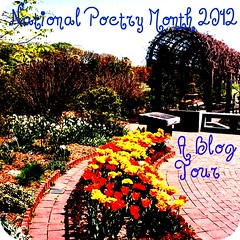
As part of the continued effort to show a variety of poets, poetry, and poetry lovers, today’s guest post is from a man working at the law firm Morgan and Moran in Atlanta, Ga., Jacob Klein.
Please give him a warm welcome as he tells us about the poetry and the law.
Poetry, at its best, is mastery of language. Combining meaning with rhythm, rhythm with cadence and cadence with meter allows the poet to imprint words onto consciousness in a way that mere prose cannot.
A certain mastery of language is demonstrated in this piece, a decision rendered as a result of a car accident between a car and a tree. Judge Gillis produced the opinion as a parody of Joyce Kilmer’s poem, “Trees.”
We thought that we would never see A suit to compensate a tree. A suit whose claim in tort is prest Upon a mangled tree's behest; A tree whose battered trunk was prest Against a Chevy's crumpled crest; A tree that faces each new day With bark and limb in disarray; A tree that may forever bear A lasting need for tender care. Flora lovers though we three, We must uphold the court's decree.The legal profession is not always loved and adored. Indeed some bards have chosen the doggerel form as a means of communicating negative feelings. One such is Brit performance poet, Alfred Lord Telecom, whose work “England’s Favorite Poem” is reproduced here. (Warning kids:contains a rude word.) The reader is referred to verse 8.
In antiquity no distinction was made between spoken and sung verse. It’s a fair point and allows us to consider Percy’s Song, written by Bob Dylan.
Law and language, hand in hand To help us statute understand Let speech be clear; coherent, please. Let’s not baffle with legalese.If it rhymes and it’s Dylan– it must be true.
Shakespeare, of course, is one of the great masters of the English language and it is to him we turn for our next example.
In this extract Hamlet considers a disinterred skull. To those asserting that the above is not poetry a poet might reply that everything that Shakespeare wrote is poetry.
“Why, may not that be the skull of a lawyer? Where be his quiddities now, his quillities, his cases, his tenures, and his tricks? Why does he suffer this mad knave now to knock him about the sconce with a dirty shovel, and will not tell him of his action of battery? Hum! This fellow might be in's time a great buyer of land, with his statutes, his recognizances, his fines, his double vouchers, his recoveries: is this the fine of his fines, and the recovery of his recoveries, to have his fine pate full of fine dirt? Will his vouchers vouch him no more of his purchases, and double ones too, than the length and breadth of a pair of indentures? The very conveyances of his lands will scarcely lie in this box; and must the inheritor himself have no more, ha?" (Hamlet, 5.1.97), Hamlet to HoratioSo at the end of a long day of legal briefs, angry clients and injunction filings there may be no better remedy than a comfortable chair, a sip of your favorite beverage and a wonderful poem. As these wordsmiths hone your mind like a whetstone to a sword you may even become a better lawyer for it!
About the Guest Post Author:
Jacob works with Morgan & Morgan, a personal injury law firm in Atlanta. He lives just outside the city with his wife Lily and their Shiba Inu, Henry.
***Today’s NPM tour stop is over at Peeking Between the Pages with Nicole Luongo of Bare Your Naked Truth.***




